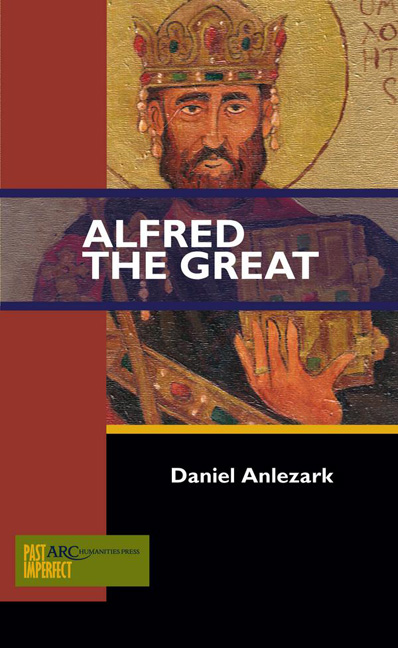Chapter 1 - Finding Alfred
Published online by Cambridge University Press: 14 January 2021
Summary
Alfred the Great, king of Wessex from 871 until 899, is not the man he used to be. From the mid-nineteenth century until well into the twentieth, schoolchildren across the English-speaking world, and many in British colonies, knew the king as one of the great men of history, a founder of the English nation, and therefore ultimately of the British Empire itself. He was a warrior king whose intellect brought light to the “Dark Ages,” with his love of poetry, his Latin learning, his English translations, and the invention of the candle-clock. Alfred was a great soldier and statesman, who subdued the Viking threat that had engulfed the Anglo- Saxon kingdoms across Britain during the ninth century, and made peace. However, the twentieth century has robbed us of Alfred in various ways. Most fundamentally, he is falling out of cultural memory, largely as the result of new approaches to teaching history in schools. The rigours of academia have not helped—some literary scholars have disputed the assertion that Alfred ever translated anything from Latin into English, and despite some defence, doubts remain about his personal contribution to the history of English literature. There is no doubting Alfred's military suc cess—here his credentials are good—but Vikings exert a stronger influence over the historical imagination and modern taste than do the sober-minded Christian kings who halted their depredations and made deals with them. Alfred's recent characterization as untrustworthy and ambitious in the television series The Last Kingdom—adapting Bernard Cornwall's historical fiction—is unlikely to have won him new admirers. Alfred and his historical standing also find themselves up against monumental developments in western society, at a moment when European and North American cultural hegemony gives way to a global culture, often relegating formerly “central” historical narratives. Why should anyone care today about a mythologized founder of a defunct empire, born into royalty, and an unwitting hero of the white race? The Alfred bequeathed to us is in many ways the epitome of the “dead white male,” but such a view is only possible through the narrow lens of the moment in which we ourselves live.
- Type
- Chapter
- Information
- Alfred the Great , pp. 1 - 32Publisher: Amsterdam University PressPrint publication year: 2017

